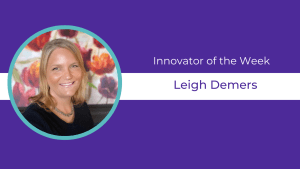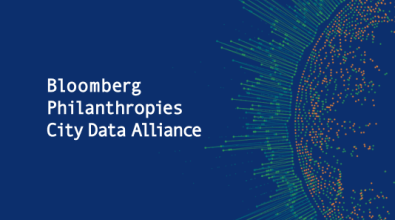Taking a human-centered approach to improving staff morale

Title: Business Intelligence Specialist
City: Oklahoma City, Okla.
A few years ago, Leigh Demers got to be part of an innovation training offered to a group of Oklahoma City employees through the Bloomberg Harvard City Leadership Initiative. She and her colleagues from other departments learned how to use human-centered design to work with residents to find solutions to tough challenges.
Now, Demers is taking what she learned and spreading it further within the Public Works Department, where she’s a business intelligence specialist.
The department is exploring ways of improving workforce morale, at a time when cities across the U.S. are having to work extra hard to retain workers. A survey of the department’s 500-plus employees, Demers says, “found that people generally felt we weren’t doing a great job at recognition and communication.” That was good to know, but a little vague in terms of helping to identify underlying problems and potential solutions.
In response, Demers suggested the city put together an innovation team that would follow the methods she learned from the Bloomberg Harvard program. In January, 16 frontline employees were put on a team to dive deep into what the root issues were. “We wanted to create a team of people that really don’t get a voice or a seat at the table when policy is being made,” says Demers, who coached the team. “I’m trying to follow the method we learned and really understand the problems. We don’t want Band-Aids. We don’t want to create something that might help, but not really fix the actual root problem.”
Team members set out to interview others in the department, bringing more clarity to issues identified in the employee survey. They’ve learned about problems with physical workspaces, trust and transparency, and seemingly simple things like clarity around job definitions when new employees are onboarded. “We can make all these assumptions about what we think is going on,” Demers says, “but you don’t really know until you go out and gather the data.”
At the same time, she’s seeing that workers feel heard in a new way. “I really didn’t expect this, but you have a lot of people that no one has ever asked about their opinion,” Demers says. “Now somebody’s asking.”
Pro tip: “Never assume you have the right solution if you haven’t stepped outside your office to explore the issue. Understand first, find solutions later.”


